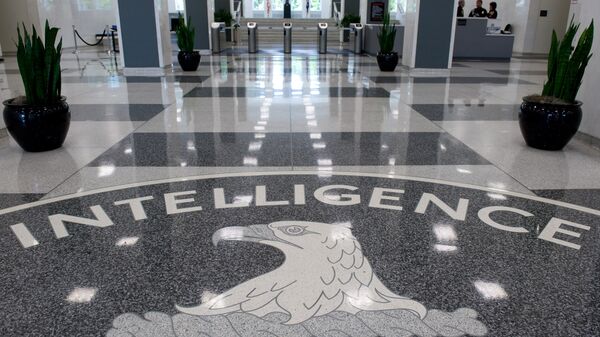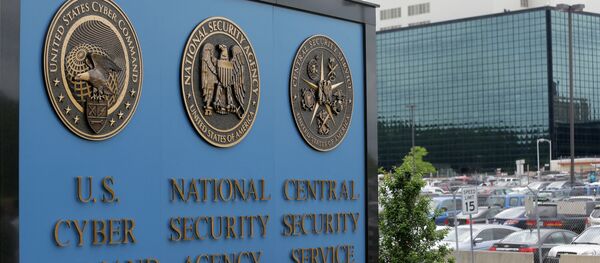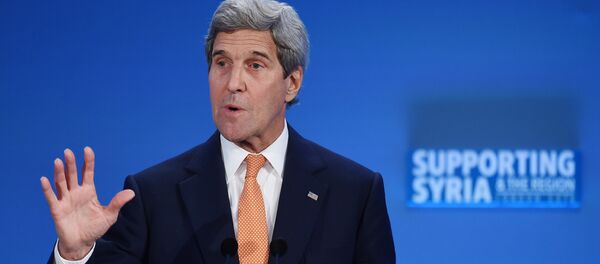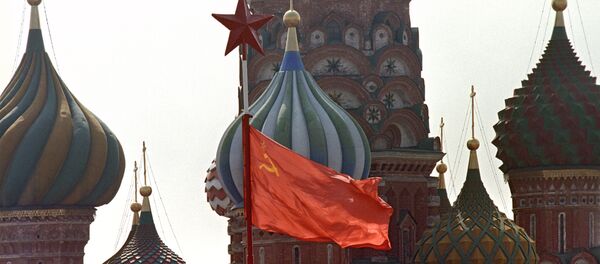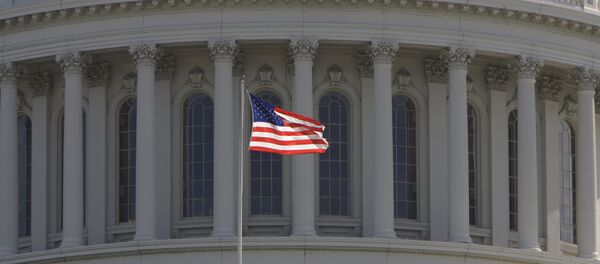On Wednesday, sources cited by the Washington Post confirmed that US intelligence agencies are in the process of expanding their operations against Russia to the largest levels since the Cold War. The "mobilization," involving the CIA, the NSA, and other intelligence services and assets, is seeing a shift of resources committed to terrorist threats and US war zones back to Russia.
According to US analysts speaking to WP, even the present spending amounts are still not enough, since "US spy agencies have struggled to anticipate Moscow's moves."
Asked to comment on the story, Sergei Ermakov, a senior expert at the Russian Institute for Strategic Studies, suggested that the surging focus on Moscow is yet another indication that Washington is "reviewing Russia's status, and now regards us not just as a geopolitical rival, but an outright enemy."
"It's for this reason that the US is increasing military spending in those regions where a clash with Russia might occur," the expert said, speaking to the Svobodnaya Pressa news website. "The same goes for all kinds of American intelligence operations. And it's necessary to understand that a significant portion of the financing for such operations, especially in the information sphere, goes through channels not directly connected to the financing of the intelligence community."
In other words, Ermakov emphasized, "when the Washington Post says that US intelligence agencies are spending upwards of 10% of their total budget for work against Russia, that is not really the case. Overall, the amounts spent…are much greater."
"The calculation is simple: if, as during the Cold War, the policy of containment and pressure on Russia bears fruit without an armed intervention, that will be a victory for the US….This is the scenario Washington would be most happy with, since they are not ready for a serious armed confrontation."
Accordingly, Ermakov warned, in the spheres of intelligence and subversion, Washington has not only preserved its resources, but expanded them. "The US has a good network of sleeper agents on Russian territory; typically, such agents are used in the pre-war period to carry out political and military tasks."
"Apart from that, the US has made a great deal of progress in recent years when it comes to informational and psychological subversion, using international structures. It is in this that the power of US intelligence currently lies."
As to the intensification of US intelligence activities against Russia, Ermakov believes that it signals that the deterioration of Russian-US relations have passed a "point of no return. [It] means that restoring relations with the US to normal – to the level of five years ago, will no longer occur. Instead, a tough exchange of some sort is brewing between the two countries, although it's difficult to say at this point what form it will take."
But that doesn't mean that there isn't a struggle going on among the US political establishment regarding what course the next president will have toward Russia, the analyst added.
Asked how Russia might respond to the growing US threat, Ermakov suggested that it's necessary, first and foremost, for some elements of the Russian political elite, particularly its liberal wing, to break with the illusion that Russia has "done something wrong," and that "if we agree to a compromise with the US now, everything will calm down and return to normal."
"This is impossible. Moscow and Washington face a chasm in their positions, as a result of which the two sides have presented each other with a whole list of charges; Western countries have shifted to a serious stance against Russia in all directions, a process which has gained its own momentum."
For example, the analyst noted, "perhaps someone thinks that the anti-Russian doping scandals in the Rio Olympics and Paralympics, or the accusations against Russia for hacking attacks, are just an unfortunate coincidence. This is a profound mistake. These events are links in one chain. They are designed to legitimize a global image of Russia as an enemy whose aggression must be repelled…"
"We must try to convince the Europeans that it's not too late to switch to normal negotiations – to create the conditions for new bilateral agreements – a 'Yalta-2' if you will. And for that we must act more decisively – to increase diplomatic efforts, to seek out new forms of psychological-informational work. Plus, of course, we must demonstrate the growing military potential of our country."
Mikhail Alexandrov, a senior researcher at the Moscow State Institute of International Relations, disagreed with his colleague on the extent of the threat posed by US intelligence at the moment. The US intelligence buildup is only logical, the analyst suggested, and has to do with the fact that Washington has lost a professional understanding of the country's polity since the collapse of the Soviet Union.
In the 1990s, the expert recalled, US officials believed that the Yeltsin government's policies would lead the country to its natural death. Washington allowed Sovietology to become defunct, with its experts failing to "actively engage in the study of the Russian Federation," leading them to fall behind the times, "to stick to old stereotypes, and thus to fail to understand Moscow's current logic."
The main question, according to Alexandrov, is whether the US will have enough time left to train these specialists, and to use them, before America effectively loses its campaign for global hegemony.
In this situation, Russia's response is simple, according to the analyst. Russia's counterintelligence services must counter US attempts to obtain sensitive information, and keep an eye on would-be US agents seeking to destabilize the country. Most importantly, Alexandrov noted, Russia must understand "that US intelligence services do not only collect information, but also carry out operations, including political operations, to undermine statehood. Factually, US intelligence is a tool of hybrid warfare; that cannot ever be discounted."
